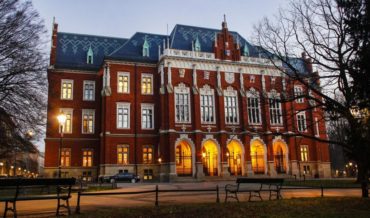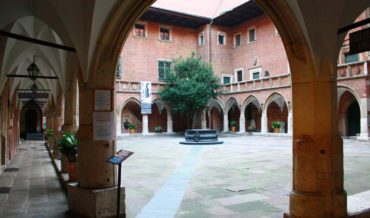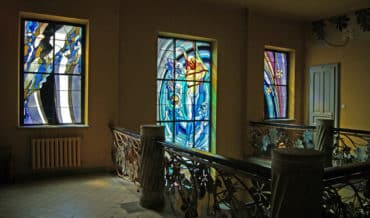Contents
Key Facts
• Born and died in Krakow (1870-1918), spending most of his life in his beloved hometown
• Multi-talented writer: poet, playwright, prose writer, and translator who contributed significantly to Polish literature during the Young Poland movement
• Jagiellonian University graduate with a doctorate in law from one of Central Europe's oldest and most prestigious universities, later studied in Berlin
• Famous wedding: married Jadwiga Mikołajczykówna from Bronowice Małe, inspiring Wyspiański's masterpiece "The Wedding"
• Folk culture advocate: established multiple reading rooms and organized cultural events to promote Polish folk traditions during the partitions
• Notable works: "Zaczarowane koło" (Magic Circle), dramatic works, and poetry collections featuring authentic folk motifs
• Cultural bridge-builder: connected urban intellectual circles with rural peasant traditions, embodying Young Poland ideals
Early Life and Education
Lucjan Rydel was a distinguished Polish poet, playwright, prose writer, and translator, born and died in Krakow. His life story represents a fascinating blend of academic achievement, literary talent, and deep connection to Polish folk culture that would define his entire career during the late 19th and early 20th centuries.
Rydel pursued his higher education at the prestigious Jagiellonian University, one of Central Europe's oldest and most esteemed universities, where he studied law and demonstrated exceptional academic prowess. His dedication to learning was evident when he obtained his doctorate in 1895, establishing himself as both a scholar and an intellectual. Not content with his achievements in Krakow, he continued his studies in Berlin, where he was exposed to broader European intellectual currents and legal scholarship that would later influence both his worldview and literary work.
Professional Career and Literary Development
Early Career in Warsaw
After completing his education, Rydel moved to Warsaw, where he embarked on his professional journey in journalism and literature. He contributed significantly to the influential liberal newspaper "Gazeta Polska," where his articles and early literary pieces often reflected themes of Polish national identity and social commentary. This platform allowed him to engage with leading intellectuals and shape public discourse during the late 19th-century intellectual ferment under foreign partitions. This period in Warsaw was crucial for his intellectual development, as it exposed him to the vibrant literary circles of the Polish capital and the emerging Young Poland movement.
Return to Krakow and Cultural Mission
Despite his success in Warsaw, Rydel's heart remained in Krakow and its surrounding countryside. His return marked the beginning of his most productive and culturally significant period. He became deeply committed to preserving and promoting Polish folk culture, recognizing its importance as a source of national identity during a time when Poland, under foreign partitions, keenly sought to preserve its cultural heritage and spirit. He frequently walked through Planty Park and the historic Old Town, drawing inspiration from the city's rich cultural atmosphere.
The Famous Wedding and Literary Immortality
Marriage to Jadwiga Mikołajczykówna
One of the most significant events in Rydel's life was his marriage in 1900 to Jadwiga Mikołajczykówna, daughter of a peasant from Bronowice Małe. This union was revolutionary for its time, as it represented a bridge between the intellectual urban elite and the rural peasant class, challenging rigid social hierarchies of the era. The wedding took place in a humble village setting, far from the sophisticated salons of Krakow's literary circles and the bustling cultural life around Main Square.
Wyspiański's Immortalization
Stanisław Wyspiański was a wedding guest who immortalized the event in his masterpiece "Wesele" (The Wedding), transforming Lucjan Rydel into the character of the Bridegroom in this iconic work of Polish literature. This connection ensured Rydel's place in Polish cultural history, as Wyspiański's play became one of the most celebrated works in Polish drama, exploring themes of Polish society, intellectual paralysis, and the disconnect between dreams and reality.
The wedding represented more than just a personal union; it symbolized the potential for unity between different social classes and the importance of folk traditions in Polish culture. Wyspiański's artistic interpretation transformed a personal event into a universal statement about Polish society's struggles and the possibility of authentic cultural renewal through connection with folk traditions.
Cultural Activism and Community Engagement
Renovation and Financial Challenges
To finance the renovation of his wedding house in Bronowice, which became known as Rydlówka, Rydel became exceptionally active in Krakow's cultural life. This practical need drove him to become one of Krakow's most energetic cultural organizers, demonstrating his commitment to both his personal life and his community's intellectual development.
Educational and Cultural Initiatives
Rydel's community involvement was multifaceted and deeply impactful, reflecting the Young Poland movement's ideals of social engagement:
- He established several folk reading rooms in Krakow and surrounding villages, providing access to books and fostering literacy among the rural population
- He organized literary readings and theatrical performances that brought Polish literature and drama to ordinary citizens
- He wrote poetry rich with authentic folk motifs, often celebrating the resilience and beauty of Polish rural life, drawing inspiration from local legends and daily customs
- He created educational programs that promoted literacy and cultural awareness across social classes
These activities reflected his belief that culture should be accessible to all social classes, not just the educated elite. His work helped bridge the gap between high culture and folk traditions, creating a more inclusive cultural environment in Krakow and embodying the democratic ideals of the Young Poland movement. His efforts were part of a broader cultural renaissance that included institutions like the National Museum and the artistic legacy preserved in places like the Jan Matejko House.
Literary Works and Achievements
Major Publications
Rydel's literary output was diverse and well-regarded by both critics and the public within the Young Poland literary movement. His major works, including the philosophical drama "Zaczarowane koło" (Magic Circle), exploring themes of fate and human choice, and various poetry collections featuring folk motifs, solidified his reputation as a versatile writer deeply connected to Polish cultural traditions. His dramatic works often incorporated elements of folklore and rural life, reflecting his personal experience and authentic connection to peasant culture.
His poetry frequently featured motifs from Krakow's countryside and themes from rural life, reflecting his genuine experience living among peasants after his marriage. This authentic connection to folk culture, rare among intellectuals of his time, gave his work a distinctive voice that resonated with readers across social boundaries and contributed to the broader Young Poland goal of creating a genuinely Polish literary expression. He was part of a vibrant artistic community that included contemporaries whose works are now preserved in museums like the Józef Mehoffer House.
Translation and Editorial Work
As a translator and cultural mediator, Rydel helped bring foreign literature to Polish readers while also promoting Polish folk traditions, contributing to the cultural exchange vital for Polish intellectual development during the partition period. His editorial and translation work demonstrated his linguistic skills and his commitment to enriching Polish literary culture with influences from other European traditions while maintaining authentic Polish character.
Legacy and Cultural Impact
The Rydlówka Connection
The house where Rydel lived with his wife became an important cultural site in Bronowice that commemorates his contribution to Polish literature and his role in bridging social divides. This location serves as a testament to his lasting impact on Krakow's cultural landscape and continues to attract visitors interested in the history of the Young Poland movement.
Influence on Polish Literature and Society
Rydel's work and life story influenced generations of Polish writers and cultural activists within the Young Poland movement and beyond. His example of crossing social boundaries and celebrating folk culture became a model for other intellectuals who sought to create a more inclusive Polish cultural identity. His marriage and the literary work it inspired continue to be studied as examples of how personal choices can have broader cultural significance and how authentic engagement with folk traditions can enrich literary expression.
Lucjan Rydel's life represents the ideal of the engaged intellectual – someone who used his education and talents not just for personal advancement, but to serve his community and preserve the cultural traditions that define Polish identity. As one of the famous Polish people who shaped the nation's cultural heritage, his story remains relevant today as an example of how individuals can bridge social divides, challenge class barriers, and contribute to their community's cultural richness while maintaining authentic connections to folk traditions. The cultural diversity he championed continues to thrive in modern Krakow, reflected in events like the Jewish Culture Festival and the city's connection to great figures like John Paul II. The historic Kazimierz district and the majestic Wawel Castle stand as enduring symbols of the rich cultural tapestry that Rydel helped weave through his literary and social contributions.
References
- Polski Słownik Biograficzny, Tom XXXIII, Wrocław-Warszawa-Kraków: Zakład Narodowy Imienia Ossolińskich, 1991-1992
- Krzyżanowski, Julian. Dzieje literatury polskiej. Warszawa: Państwowe Wydawnictwo Naukowe, 1969
- Podraza-Kwiatkowska, Maria. Literatura Młodej Polski. Warszawa: Państwowe Wydawnictwo Naukowe, 1992
- Archiwum Narodowe w Krakowie, materials related to Bronowice village and Rydlówka
- Biblioteka Jagiellońska, manuscript collections related to Young Poland movement


